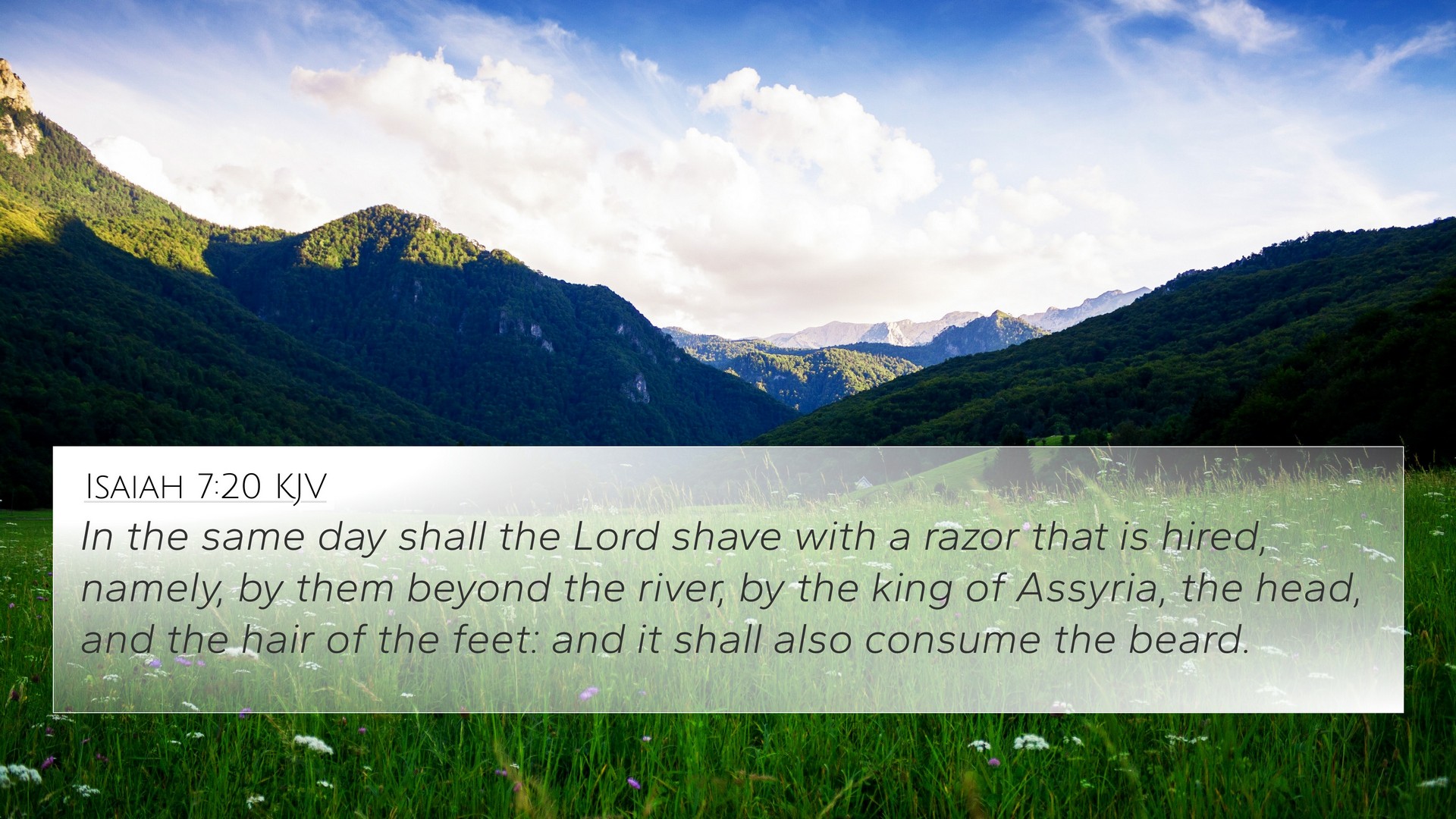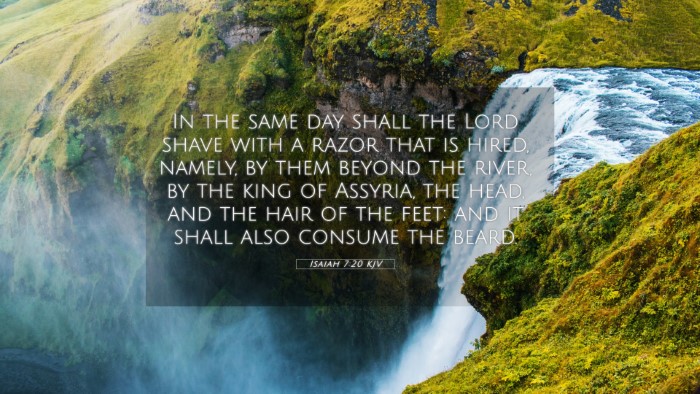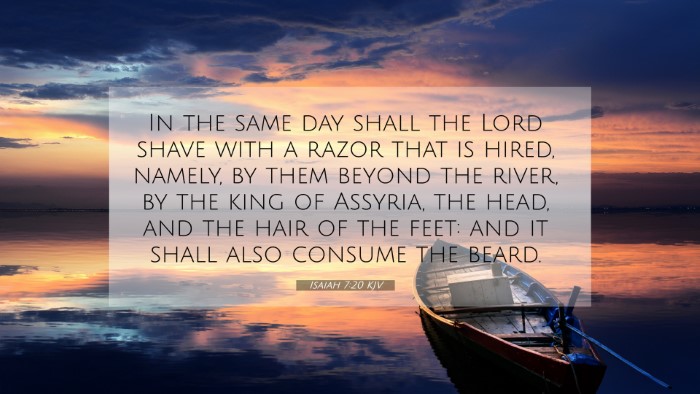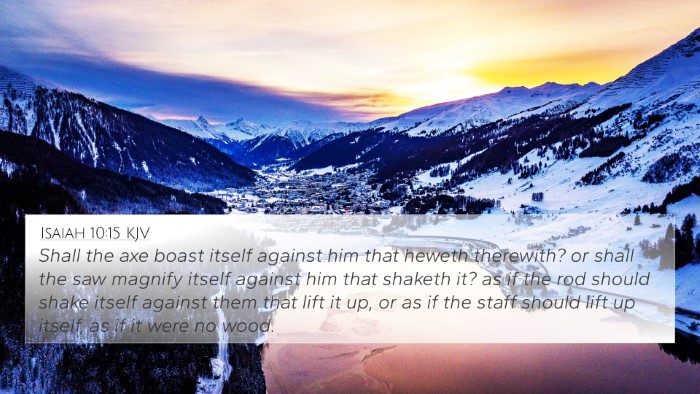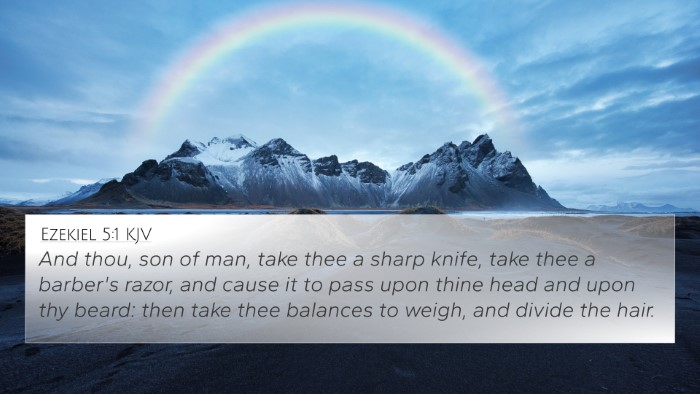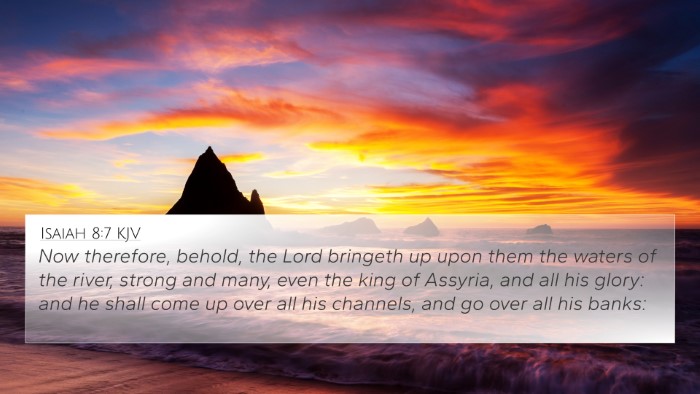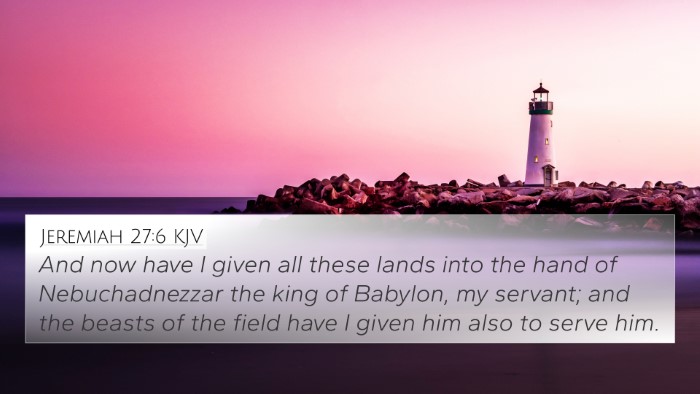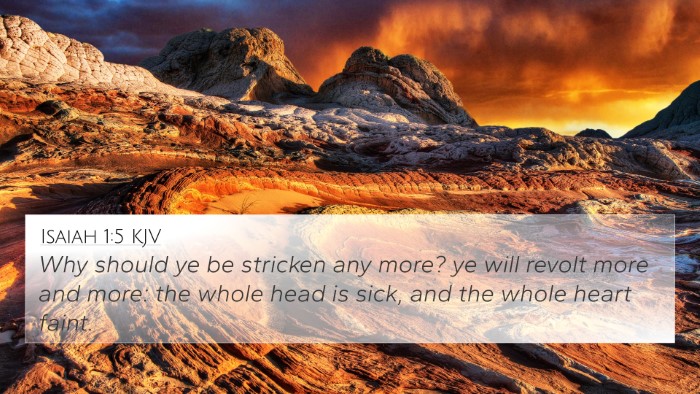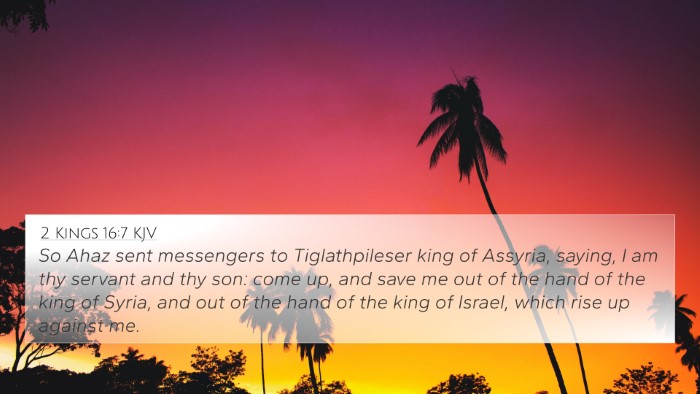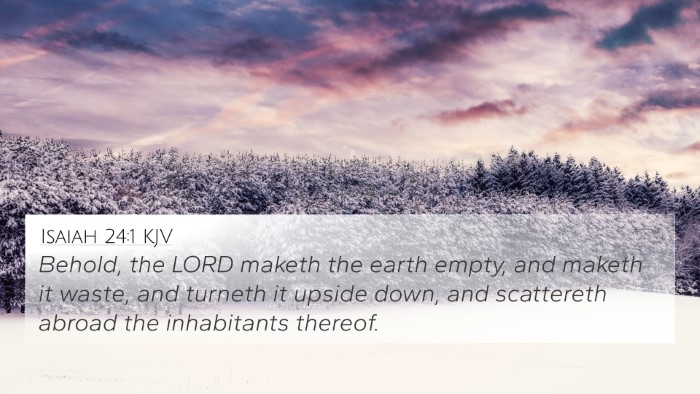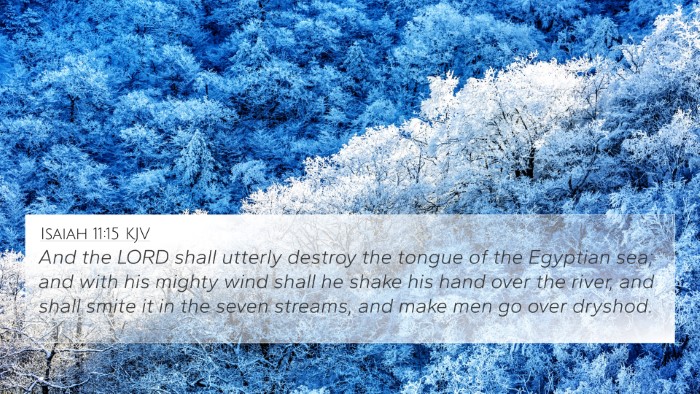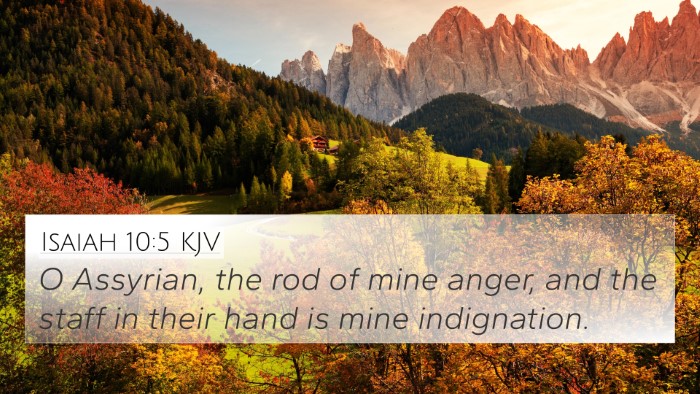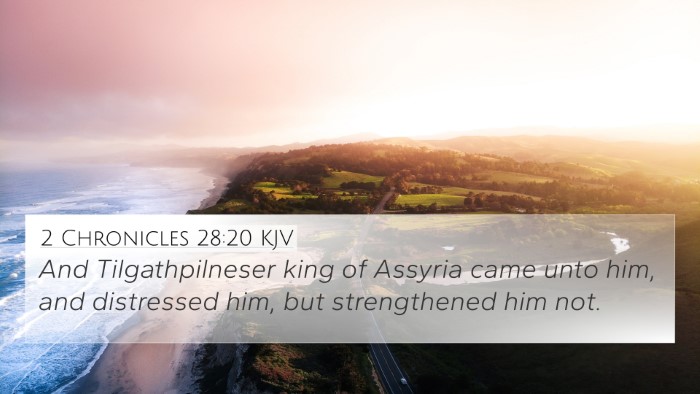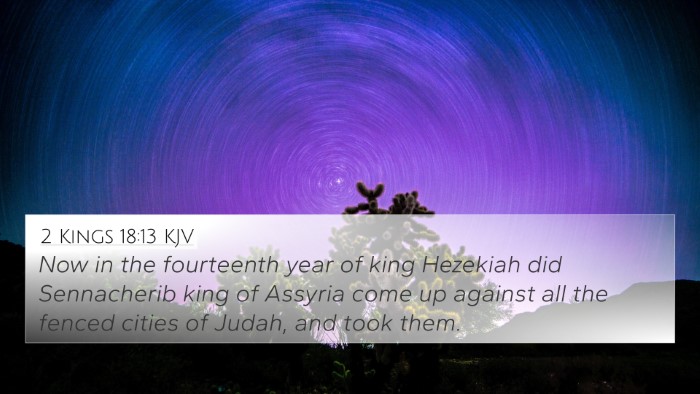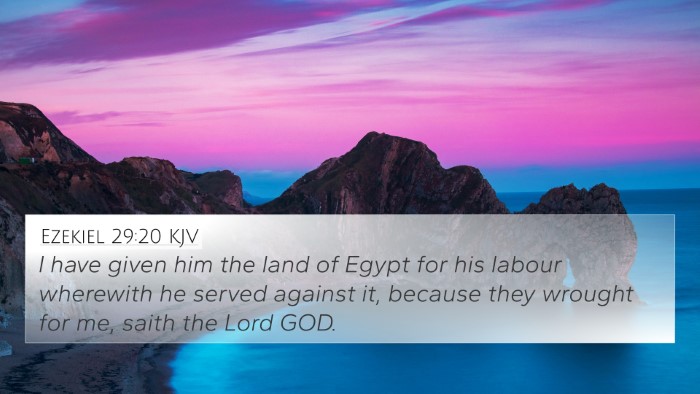Meaning and Interpretation of Isaiah 7:20
Isaiah 7:20 states: "In the same day shall the Lord shave with a razor that is hired, namely, by them beyond the river, the king of Assyria, and the head, and the hair of the feet: and it shall also consume the beard." This verse conveys a powerful message regarding judgment, divine sovereignty, and the evocative imagery of shaving, which represents humiliation and loss of dignity.
Contextual Background
To fully understand Isaiah 7:20, it's crucial to look at the surrounding chapters and the historical context. This period in Israel was marked by political turmoil and threats from surrounding nations. Assyria, under King Tiglath-Pileser III, was a significant force threatening the northern kingdom of Israel and Judah.
Interpretative Insights from Commentaries
Matthew Henry's Commentary
Matthew Henry emphasizes the symbolic nature of the "razor" mentioned in the verse, indicating that it represents a tool of suffering and judgment in the hands of God. He highlights that God uses the Assyrians as agents of his judgment—a hired razor that will bring destruction to those who have turned from Him.
Albert Barnes' Notes
Albert Barnes elucidates that the "razor" is not only a symbol of destruction but also reflects the idea of divine authority. The king of Assyria, though a foreign ruler, is depicted as being used by God to accomplish His will. Barnes also points out that this act of shaving signifies a complete loss of personal and national identity for the people.
Adam Clarke's Commentary
Adam Clarke elaborates on the imagery of the razor being hired, suggesting that it highlights how God can use any means necessary to achieve His purposes. He also details how the act of shaving, particularly of the beard, which was a source of pride and dignity, indicates a profound personal humiliation.
Key Themes
- Divine Sovereignty: The verse reflects how God controls the destinies of nations and uses them to fulfill His divine plan.
- Judgment and Consequence: It serves as a warning that turning away from God can lead to severe consequences, including humiliation.
- Symbolism of Shaving: Shaving here symbolizes losing dignity and identity, a common theme in prophetic literature.
- Assyrian Influence: It showcases the looming threat of Assyrian power over Israel, emphasizing the reality of oppression God's people faced.
Cross-References
To better understand the connections and relevance of Isaiah 7:20, consider the following Bible verse cross-references:
- 2 Kings 16:7-10: A historical account of Ahaz seeking assistance from Assyria.
- Isaiah 8:7-8: Further discussions on the flood of Assyria as a judgment.
- Jeremiah 51:20-22: Imagery of God's tools of judgment against nations.
- Deuteronomy 28:47-48: Consequences of disobedience to God’s commandments.
- Zechariah 11:17: Represents the significance of losing one’s dignity.
- Ezekiel 5:1-4: The consequences of sin illustrated through the act of shaving.
- Matthew 3:12: John the Baptist references the axe being laid at the root, indicating impending judgment.
- Romans 13:1-2: The concept of God establishing authorities, even those that execute judgment.
- Mark 14:65: A New Testament reference to the humiliation of Christ, drawing parallels with shaming imagery.
- James 4:6: God’s resistance to the proud, resonating with themes of humbling in judgment.
Thematic Connections
This verse is rich with connections to other Biblical texts, resonating with themes of judgment, identity loss, and God’s sovereignty. It propels a deeper understanding through scriptural cross-referencing, encouraging comparative Bible verse analysis.
Conclusion
Isaiah 7:20 serves as a profound reminder of God’s sovereignty and the gravity of national and personal identity in relation to divine standards. The act of using a "razor" speaks volumes about the consequences of turning away from God, and the connections between this verse and others enrich our understanding of Biblical themes and judgments.
